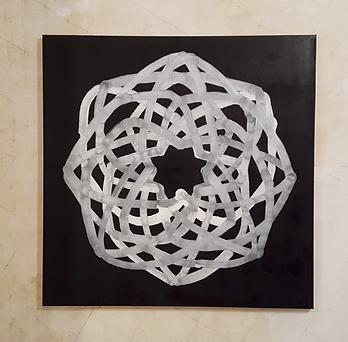Marie Cloquet
TRAVELING LIGHT
08/09/2019 - 20/10/2019
Marc Rossignol
Synchrone
Opening Sunday 9 September 2018
Marc Rossignol
Synchrone
Opening Sunday 9 September 2018
Marc Rossignol
Synchrone
Opening Sunday 9 September 2018
Marc Rossignol
Synchrone
Opening Sunday 9 September 2018
Herman Van Ingelgem
Foreign Bodies & Protheses
06/09/2021 - 17/10/2021
Being and appearance
When I entered Yann Freichels' studio on Rue de la Brasserie in Liège, something unusual happened to me: nothing.
This rarely happens to me outside of a theater space. There I know it from the apparently empty stage. An empty stage offers the possibility of a space that can be filled with: The world. Utopian, dystopian, heterotopian, even real world, if you like. What they have in common is that they only exist in this moment, in this place, with me.
A “space of appearance”, as Hannah Arendt calls it unsurpassably.
A space in which proposals, visions, dangers, etc. of a future of living together have room to appear, to be... to be negotiated.
The space in which that which distinguishes us is seen and heard. Is perceived. Aísthēsis. An art space.
A space in which questions arise. Not rhetorical questions. Not questions to which there are already answers. Questions that arise for those who are prepared to enter such a space. A theater or an exhibition or a concert or a rescue ship on the Mediterranean or many others. Sometimes even a parliament.
For me at that moment: the studio of Yann Freichels.
This anything but empty - in the sense of objectless - space was quickly filled with pictures full of 'histoires' and 'mémoires'.
As an experienced observer, I am initially suspicious of such processes: seemingly randomly arranged works are rotated, placed and seemingly reluctantly commented on by Yann.
I describe impressions. Interpretations, judgments of an experienced process. An action. Suggested arbitrariness, which repeatedly gives the lie to itself as one progresses through his works.
What I experienced there in Yann Freichel's studio happens rarely - but nevertheless from time to time: Uncertainty.
Empty spaces that are filled with uncertainty are the spaces that make confrontation possible. If I as a viewer am prepared to allow this uncertainty, levels open up that arise solely from the simultaneity of the presence of the viewer and the event that causes this uncertainty - in this case the viewing of Yann's works.
Now I could provide another quick explanation of this uncertainty: We come from the same region whose history apparently plays a central role in his works. And these sometimes intrusive motifs are unmistakable. But it would be just that: a quick explanation.
Much more subtly, these pictures combine his personal history, the historical radiance of this marginal region in which he grew up, with his irrepressible urge to become involved in this world through his pictures and his creative skills, of which he seems to know so little.
I am a theater person. Not an art critic. But Yann Freichel's paintings do for me what I rarely experience in the theater: an unobtrusively profound offer to engage with the 'histoires' and 'mémoires' of the world in which we live today and - if we are prepared to take in the artfully sloppily painted over parts of his paintings - to shape our common future, on the basis of existing difference, step by step in an open discourse. Whether failing or succeeding. The main thing: always anew.
Kurt Pothen
Translated from German
.png)
.png)


